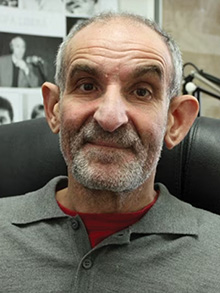Publications
How the Military Escalation in Gaza Could Impact the South Caucasus  By Yeghia TASHJIAN, Beirut-based regional analyst and researcher, columnist, "The Armenian Weekly”
By Yeghia TASHJIAN, Beirut-based regional analyst and researcher, columnist, "The Armenian Weekly”
On October 7, 2023, Palestinian Islamist militant group Hamas launched operation “Al-Aqsa Flood,” aiming to destroy the Israeli army positions near Gaza and capture as many soldiers as possible, in order to exchange them with the almost 7,000 Palestinians detained in Israeli prisons. The operation created a shockwave in Israeli society, killing more than 1,000 soldiers and civilians. As a result, Israelis started indiscriminately bombing Gaza, killing civilians and threatening ethnic cleansing through a land invasion. The danger that the escalation will turn into a regional conflict involving Iran and Hezbollah is high. Such a step would surely have devastating consequences for the region and a domino effect beyond the Middle East. If Israel, which is Azerbaijan’s military partner and Iran’s regional enemy, was involved in a war of attrition in Gaza or a regional escalation, it would become isolated from the events in the South Caucasus.
READ MORE
Publications
Georgia is Losing, and Losing Badly  Interview by “Georgia Today” with Eugene KOGAN, Tbilisi-based defence and security expert
Interview by “Georgia Today” with Eugene KOGAN, Tbilisi-based defence and security expert
Georgia is not ready to defend itself if Moscow decides to invade again. And this is a very big weakness, one which should have been solved years ago and remains unresolved to this day…In Georgia, they don’t bother to ask themselves difficult questions…it’s something Georgian politicians seem to be averse to – Eugene Kogan, a researcher at the Vienna Institute of International Politics, an expert on defence and security issues in Eastern Europe and the Middle East, who has been living in Georgia for the past 10 years, told RFE/RL’s Georgian Service. We spoke to him about the role of Georgia in the region, territorial integrity, Karabakh, and the new war in the Middle East. We started with the Israel-Hamas conflict. READ MORE
Publications
Armenia Should Avoid Replacing Foreign Policy Diversification with an Anti-Russian Strategy  By Benyamin POGHOSYAN, PhD, Chairman, Center for Political and Economic Strategic Studies
By Benyamin POGHOSYAN, PhD, Chairman, Center for Political and Economic Strategic Studies
Since the 2020 Nagorno Karabakh war, diversification has probably been the most-used term in discussions about the future of Armenian foreign policy. It should be noted that Armenia has sought to pursue a diversified foreign policy since the early years of independence. In parallel with establishing a strategic alliance with Russia, Armenia has launched a pragmatic partnership with the EU and NATO. Armenia signed its first IPAP (Individual Partnership Action Plan) with NATO in 2005. NATO was actively involved in the defence reforms in Armenia accelerated after 2008, including defence education and strategic defence review. Armenia joined the EU Eastern partnership initiative in 2009. It failed to conclude the Association Agreement with Deep and Comprehensive Free Trade Area. Instead, it signed the Comprehensive and Enhanced Partnership Agreement in 2017, now serving as the solid base for Armenia–EU relations.
READ MORE